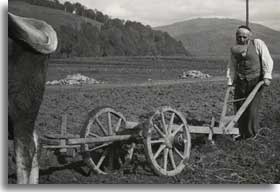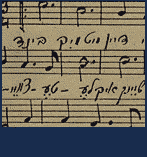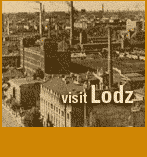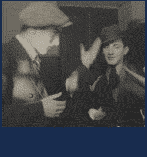

Economic Survival
Because the bulk of village Jews were poor and few occupations offered economic stability, most Jews had more than one occupation and had to be skilled in several areas of work. Contrary to what one might expect from such a rural existence, only a small minority of Jews were farmers. One reason for this was that few Jews owned sizable plots of land; more significantly, the role of farmer was the long-standing territory of the non-Jewish peasantry. Nevertheless, most village Jews did garden, cultivating certain foods - notably cucumbers and fruits - in their own gardens or on small plots owned by neighbors.
Historically, one of the most common Jewish occupations was that of the Arendar (estate manager) for the gentry who owned the greater part of rural lands. Jews paid rent in advance and were charged with the challenging job of managing the land and marketing its goods and produce. Other Jews were employed by landowners to run the estates' fruit orchards or grain mills. Jewish millers in particular were successful middlemen who could eke out a fairly decent living from grinding the peasants' grain, keeping leftover flour for themselves in payment for this service.
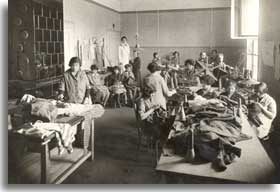

Each village had shop-owners, a tailor or two, blacksmiths, shoemakers, and other craftsmen, while carpenters, wheelwrights, and others visited regularly to offer their services to the villagers. Since both the peasants and Jews often lacked hard currency for payment, complicated trade arrangements were devised for payment such as bartering potatoes, grains, and vegetables for services, or allowing tradesmen to cultivate small plots on peasants' land for their own use. Because competition was fierce, peddlers had to keep their prices low, which keep them in perpetual poverty. They crisscrossed the country on foot or wagon, staying with peasant and Jewish families during the week, and subsisting on very little. The Sabbath was the much-needed light at the end of the week, when the peddler returned home, perhaps with a chicken, eggs, and vegetables for his wife to cook.
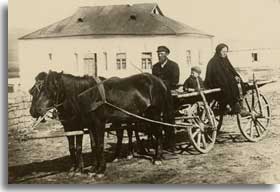

Each dorf also had one or two Jewish drivers who transported goods between cities, towns, and villages for families, shopkeepers, and other businesses before the railroad reached the remote pockets of the countryside. Their horse-drawn wagons filled the country roads, especially before Shabbos and market-days. Often times their wagons were too full of goods for the drivers to sit; instead, they walked alongside their horses for miles, holding the reins in their hands.
Usually there was also the Jewish innkeeper providing an oasis along the empty country roads. The inn served as a rest stop, hotel, and tavern serving whisky, beer, and (often) warm food. It served as a store providing repairs and new parts to distressed wagons, while also functioning as a social outlet for travelers and local peasants with few amusements at their disposal. The innkeeper was almost always a Jew, and was a particularly mythologized figure in Polish literature and theater of the 19th century. He served as a middleman between landlords and locals, a proto-capitalist connecting the country with the city, and he brought a bit of the outside world to peasants. For that the innkeeper was both admired and resented. In some Polish novels the innkeeper was characterized as lame or half-blind, a sophisticated and two-faced swindler who cheated the hapless Polish peasants of their money. The innkeeper was also portrayed as the gatekeeper to a strange and unknown underground world (taverns were said to have secret passageways and rooms) at the edge of fearsome, dark forests. Among many non-Jews blaming the Jewish innkeepers for the drunkenness of peasants, a chronic problem believed to lead to their general malaise and poverty, was widespread.






